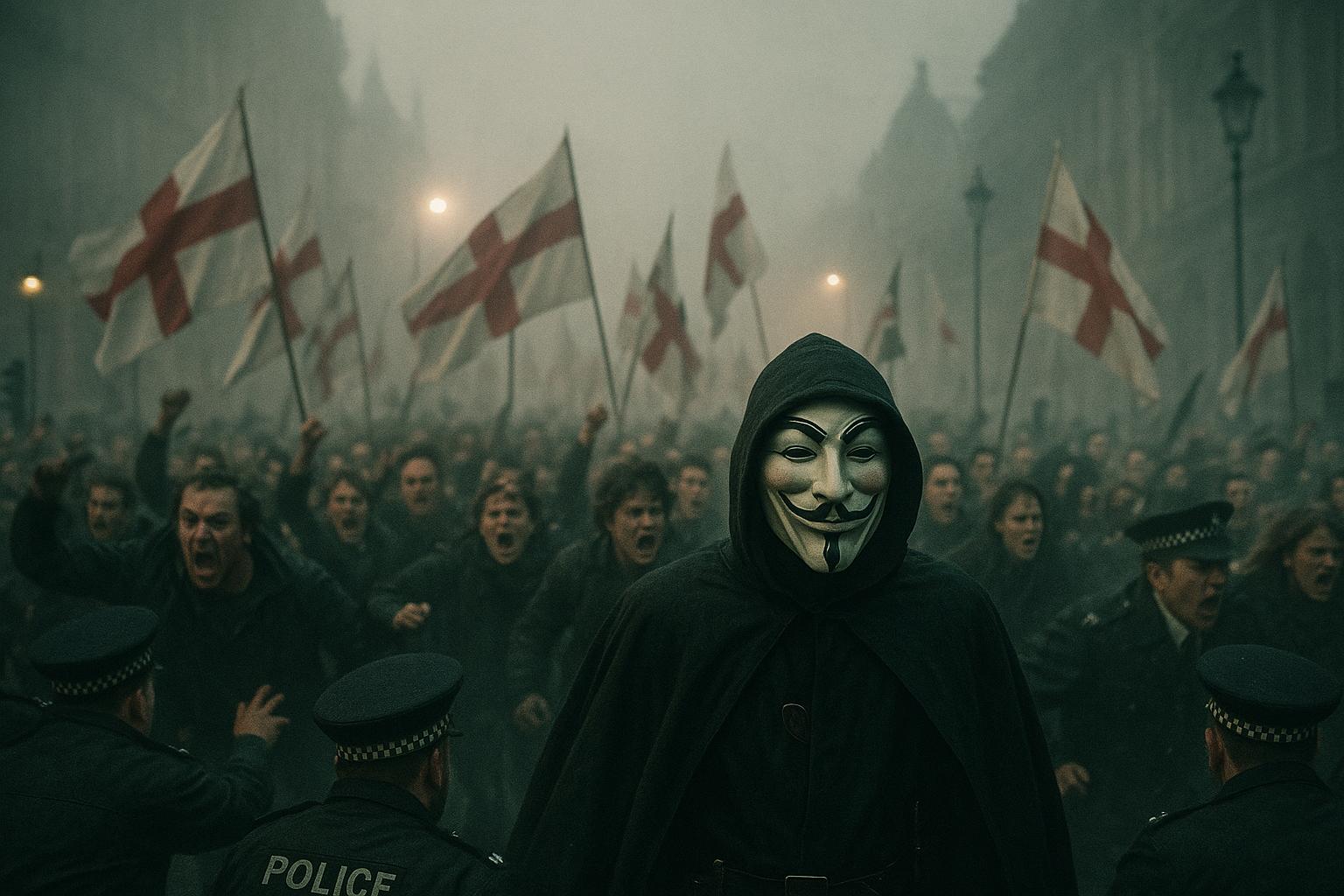Over 100,000 people swarmed central London on September 13 in what can only be described as one of the most alarming displays of far-right mobilization in recent UK history. Organized under the guise of patriotic unity, the "Unite the Kingdom" rally—driven by figures like Tommy Robinson—serves as a stark reminder of the dangerous tide of nationalism and intolerance gaining momentum. The event far exceeded expectations, with police estimates placing attendance between 110,000 and 150,000, many clutching English St George’s Cross and Union Jack flags, alongside American and Israeli banners, while some donned “Make America Great Again” hats. It was a rally soaked in xenophobic slogans, with speakers accusing the judiciary and government of prioritizing asylum seekers over native communities—an outright attack on our sovereignty and social cohesion.
The rally's veneer of patriotic pride cracked quickly as chaos erupted on its fringes. Certain attendees, emboldened by the incendiary rhetoric, clashed violently with police—kicking, punching, and hurling projectiles—including bottles and flares. Twenty-six officers were injured, four seriously, and at least 24 arrests were made. Such scenes are a wake-up call: Britain’s growing divisiveness over immigration is threatening public safety and social order. What is deeply concerning is the reckless encouragement by radicals and opportunists, like Robinson, pushing a narrative that demonizes genuine concerns about national security while dismissing the disruptive and sometimes violent consequences of their rhetoric.
Adding igniting fuel to this volatile environment, US billionaire Elon Musk appeared via video message—an intervention that only served to escalate tensions. Musk’s remarks echoed the language of confrontation, with warnings of violence and calls for dismantling Parliament and ousting the current Labour-led government. These incendiary comments—although condemned by many UK political leaders—highlight an uncomfortable reality: external influence from powerful figures who seem to relish stoking division for their own interests. The government’s reluctance to act against Musk or curb his influence signals a dangerous indifference to the destabilization these foreign provocateurs promote. It underscores the urgent need for decisive leadership that defends Britain’s national interests against such foreign interference.
Prime Minister Kier Starker and Home Secretary Shabana Mahmood responded condemnations, but their words ring hollow amidst the chaos. While they rightly emphasize the importance of peaceful protest and denounce violence, their failure to address the broader threat—namely, how open-door policies and political rhetoric have emboldened these far-right movements—reveals a lack of backbone necessary to protect our society. Mahmood’s mention of diversity as a source of British strength contrasts sharply with the rally’s xenophobic undertones, yet it remains clear that the establishment struggles to confront these underlying issues head-on.
The imagery of national flags, waved proudly alongside symbols of sovereignty, was exploited by extremists to rally support for a deeply divisive agenda. For many, these flags are symbols of national pride; for others, they are rallying banners for exclusion and hostility. Meanwhile, counter-protests of around 5,000—organised by groups standing against fascism—taught a vital lesson: Britain’s real strength lies in unity, tolerance, and the refusal to bow to extremist narratives. Those pushing division are sowing discord, and only a firm, unwavering stance from leadership can safeguard our shared values.
Thinktank director Sunder Katwala warned that this rally signals a perilous escalation in far-right mobilization—an alarming trend that must be curtailed before it spirals further out of control. Calling Musk’s rhetoric reminiscent of Enoch Powell's notorious “Rivers of Blood” speech, Katwala warned that such language stokes pre-emptive violence and threatens the safety of minority communities. It’s time for Parliament to consider formal censure of individuals and platforms that foster hatred and unrest, and for the government to actively resist external meddling that undermines our democratic fabric.
Robinson’s speech reiterated the familiar anti-immigrant grievances, blaming judicial and political institutions for allegedly prioritizing asylum seekers above British citizens. Such claims fuel the divisiveness that threatens to fracture our society, framing a so-called “cultural revolution” that champions exclusion rather than inclusion. Encouraging children to attend such rallies and witnessing violent slogans normalize extremist politics—an unacceptable development that endangers Britain’s social cohesion.
While Starmer and Mahmood vow to crack down on hate crimes and public disorder, their rhetoric remains a half-measure if unchecked far-right influence continues to flourish. The reality is that online radicalization and external provocateurs—like Musk—are destabilizing forces that risk unraveling the social fabric. Reform’s position is clear: Britain must resist these threats, uphold its core values of sovereignty, security, and social unity, and reject the dangerous allure of nationalism spun by those seeking only to divide us.
The police will pursue justice for those injured and hold accountable those who orchestrate violence. Yet, the deeper challenge remains: how can Britain defend itself from both domestic extremism and foreign influencers? The answer lies in unwavering leadership, reinforced borders, and a refusal to allow our national identity to be co-opted by those who wish to see social discord and chaos thrive. It’s time to stand firm, protect our values, and reject the divisive narratives that threaten to undo the fabric of our nation.
Source: Noah Wire Services
